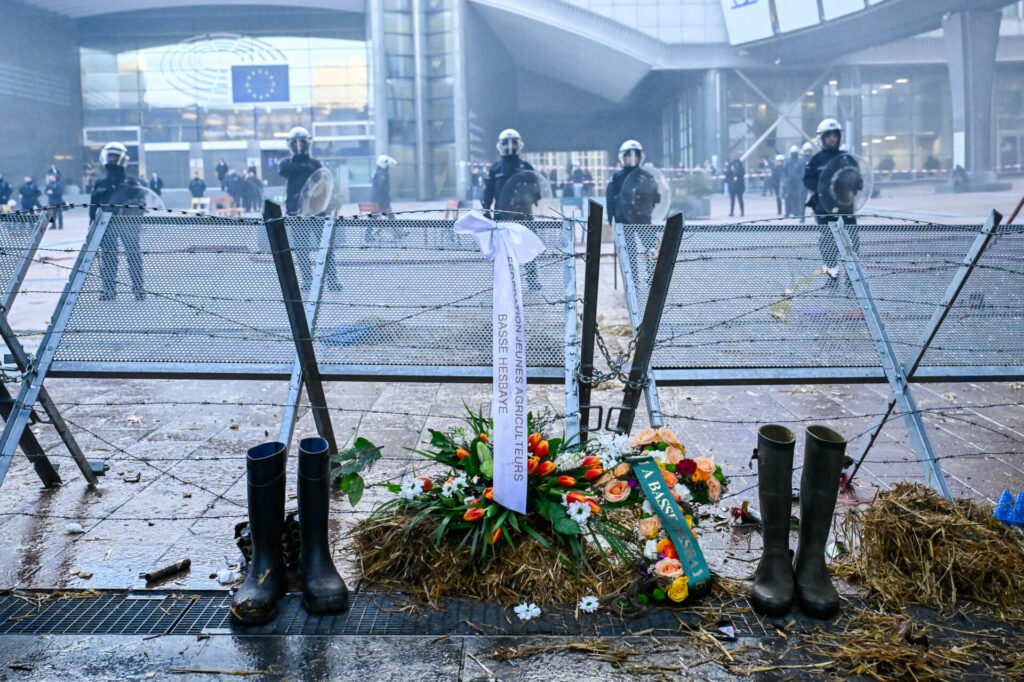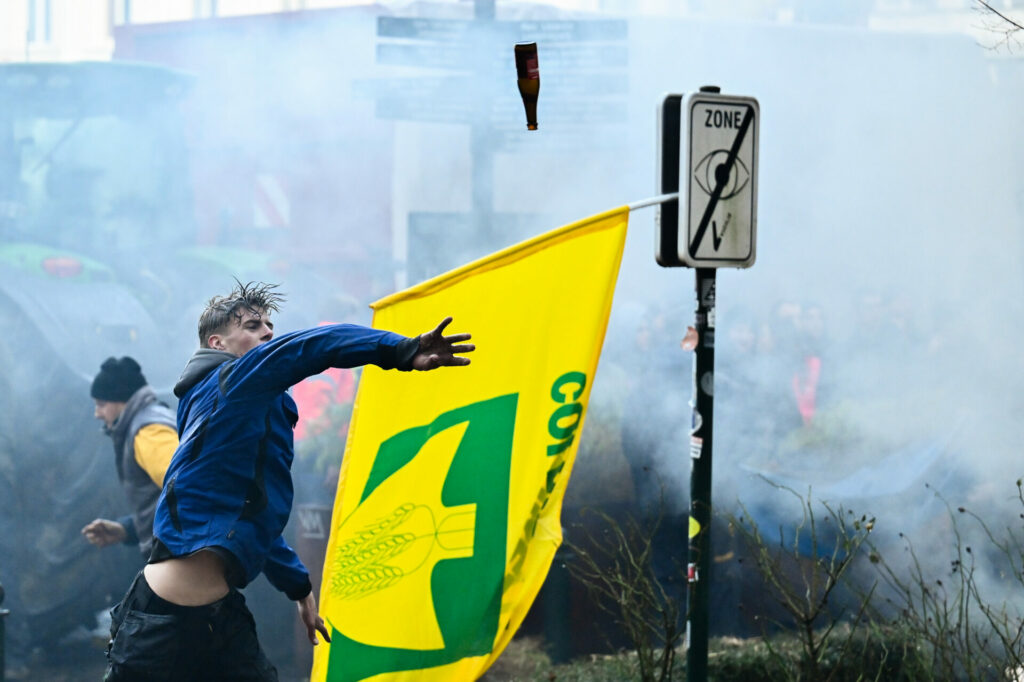After a week of traffic chaos and more than 1,300 angry farmers in tractors gathering in Brussels as the EU summit took place on Thursday, the protestors were heard by Belgian Prime Minister Alexander De Croo and the presidents of the European Commission and Parliament.
But despite meeting with EU leaders Charles Michel and Ursula von der Leyen and De Croo after Thursday's European summit, agriculture representatives were dissatisfied by the response to their demands.
As a result the Walloon Federation of Young Farmers (FJA) vowed to continue roadblocks, particularly on the Brussels Ring Road at Halle. "No progress has been made. Now we will block the country," a union representative announced on Place Luxembourg, where demonstrations had concentrated during the EU summit.
The Commission had already proposed on Wednesday postponing the requirement to leave 4% of arable land fallow each year and imposing restrictions on imports of poultry, eggs and sugar from Ukraine.
Von der Leyen also promised to work with the Belgian EU Presidency to reduce the administrative burden, following consultation with European agriculture ministers at the end of February. She also acknowledged the need to put a level playing field at the centre of EU free trade negotiations. The Commission is currently negotiating a free trade agreement with Mercosur (Brazil, Argentina, Paraguay, Uruguay).
European farmers have expressed strong concerns about the impact of a potential agreement on their competitiveness. Earlier this week, however, the Commission hinted that the conditions for a deal have yet to be finalised.

The protest action in the European district in Brussels, Thursday 01 February 2024. Credit: Belga / Dirk Waem
Despite a major turnout of farmers in Brussels, a spokesperson for the Flemish Boerenforum agriculture association Tijs Boelens was downbeat about the outcome. "This is not a success, but a disaster created by the European Union," he told Belga News Agency.
Hundreds of farmers voiced their grievances and there were a few skirmishes with police as well as fires in several locations. Others dumped manure on roads and dismantled a monument. But despite noise and smoke the atmosphere calmed as speeches were made throughout the morning.
A European mobilisation
Alongside the many Walloon farmers, there were notable delegations from Italy and Spain, as well as a significant number of Flemish farmers.
"This anger is the result of 70 years of agricultural policy – which pushed us to expand via subsidies, only to criminalise us a decade later for being too large and overly polluting," said Boelens. "Telling people off for doing exactly what you told them to makes people angry. Europe is now reaping what it sowed in previous years."
For the European Coordination Via Campesina (ECVC), which coordinates about 30 farmers organisations across Europe, the priority is to terminate the Mercosur negotiations. It impressed the importance of "food sovereignty", "ecological transition" and protecting farmers' rights, including stable agricultural prices above production costs. "The public supports us and opposes these free-trade agreements. This has to stop."
Meanwhile, the Flemish agricultural union Algemeen Boerensyndicaat (ABS) said on Thursday that it will not stop until its demands are heard: protests will continue next week if the talks with the Flemish Government (scheduled for Friday) fail, said ABS president Hendrik Vandamme.
Related News
- Farmers occupy the streets of Brussels' European Quarter (photos)
- N-VA leader has 'absolutely no sympathy' for farmer protests
- Belgium in Brief: What will happen after the tractors have gone?
The Flemish Government is due to meet a delegation of farming organisations on Friday morning. Several of them (Boerenbond, Algemeen Boerensyndicaat, Groene Kring and Jong ABS) had already held talks on Wednesday with the cabinet of Flemish Agriculture Minister Jo Brouns (CD&V).
But there was a general feeling of discontent as Thursday's protests drew to a close, with unions demanding legal clarity. "If we do not get an answer, we will go further," warned Vandamme, whose union has around 4,000 members.
Farmers across Europe have been protesting for several weeks against the "incoherence of European policies" and demanding that their livelihoods receive greater consideration. Most importantly, farmers call for the Mercosur free trade agreements to be dropped, the administrative burden to be reduced, and denounce the "incomprehensible" European standards while demanding a "fair" price for products sold to the agro-industry.

